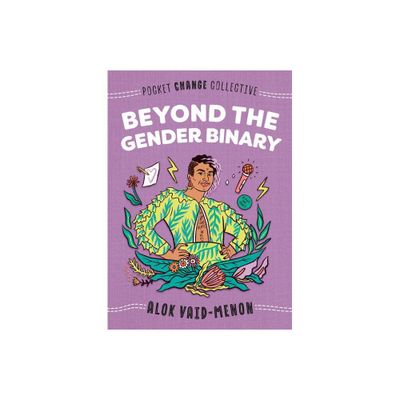Home
Beyond Gender Binaries: An Intersectional Orientation to Communication and Identities
Loading Inventory...
Barnes and Noble
Beyond Gender Binaries: An Intersectional Orientation to Communication and Identities
Current price: $65.00


Barnes and Noble
Beyond Gender Binaries: An Intersectional Orientation to Communication and Identities
Current price: $65.00
Loading Inventory...
Size: Paperback
*Product Information may vary - to confirm product availability, pricing, and additional information please contact Barnes and Noble
Beyond Gender Binaries
uses a feminist, intersectional, and invitational approach to understanding identities and how they relate to communication. Taking readers outside the familiar binary constructions of gender and identity, Cindy L. Griffin addresses—through a feminist intersectional lens—communication, identity, power and privilege, personhood and citizenship, safety in public and private spaces, and hegemony and colonialism. Twelve chapters focus on critical learning through careful exploration of key terms and concepts. Griffin illustrates these with historical and contemporary examples and provides concrete guides to intersectional approaches to communication. This textbook highlights not just the ways individuals, systems, structures, and institutions use communication to privilege particular identities discursively and materially, but also the myriad ways that communication can be used to disrupt privilege and respectfully acknowledge the nonbinary and intersectional nature of every person’s identity. Key features include:
Intersectional approaches to explaining and understanding identities and communication are the foundation of each chapter and inform the presentation of information throughout the book.
Contemporary and historical examples are included in every chapter, highlighting the intersectional nature of identity and the role of communication in our interactions with other people.
Complex and challenging ideas are presented in clear, respectful, and accessible ways throughout the book.
uses a feminist, intersectional, and invitational approach to understanding identities and how they relate to communication. Taking readers outside the familiar binary constructions of gender and identity, Cindy L. Griffin addresses—through a feminist intersectional lens—communication, identity, power and privilege, personhood and citizenship, safety in public and private spaces, and hegemony and colonialism. Twelve chapters focus on critical learning through careful exploration of key terms and concepts. Griffin illustrates these with historical and contemporary examples and provides concrete guides to intersectional approaches to communication. This textbook highlights not just the ways individuals, systems, structures, and institutions use communication to privilege particular identities discursively and materially, but also the myriad ways that communication can be used to disrupt privilege and respectfully acknowledge the nonbinary and intersectional nature of every person’s identity. Key features include:
Intersectional approaches to explaining and understanding identities and communication are the foundation of each chapter and inform the presentation of information throughout the book.
Contemporary and historical examples are included in every chapter, highlighting the intersectional nature of identity and the role of communication in our interactions with other people.
Complex and challenging ideas are presented in clear, respectful, and accessible ways throughout the book.


















